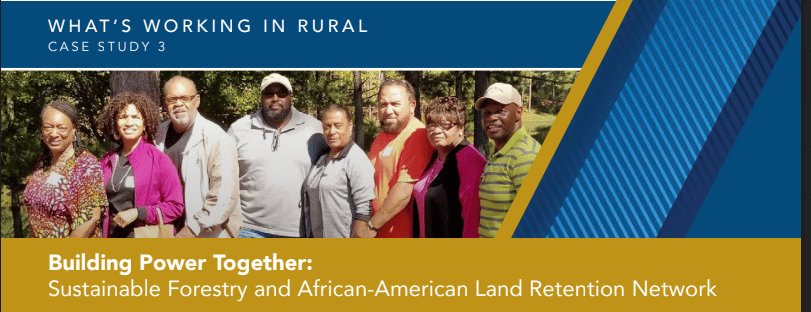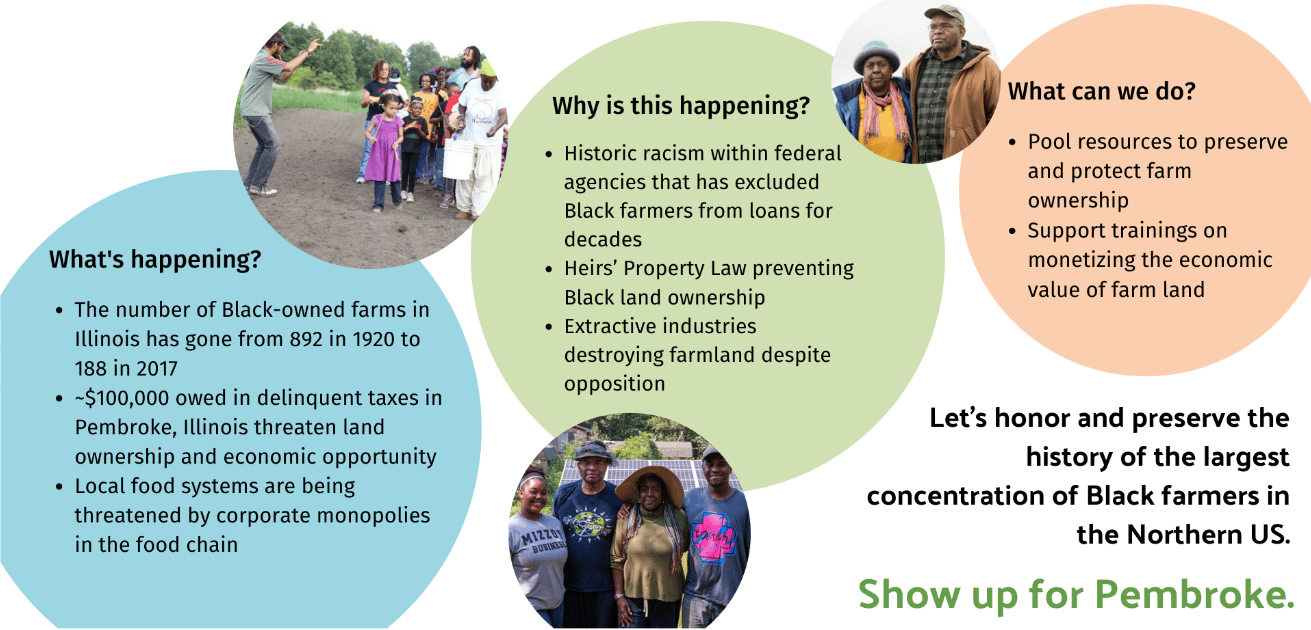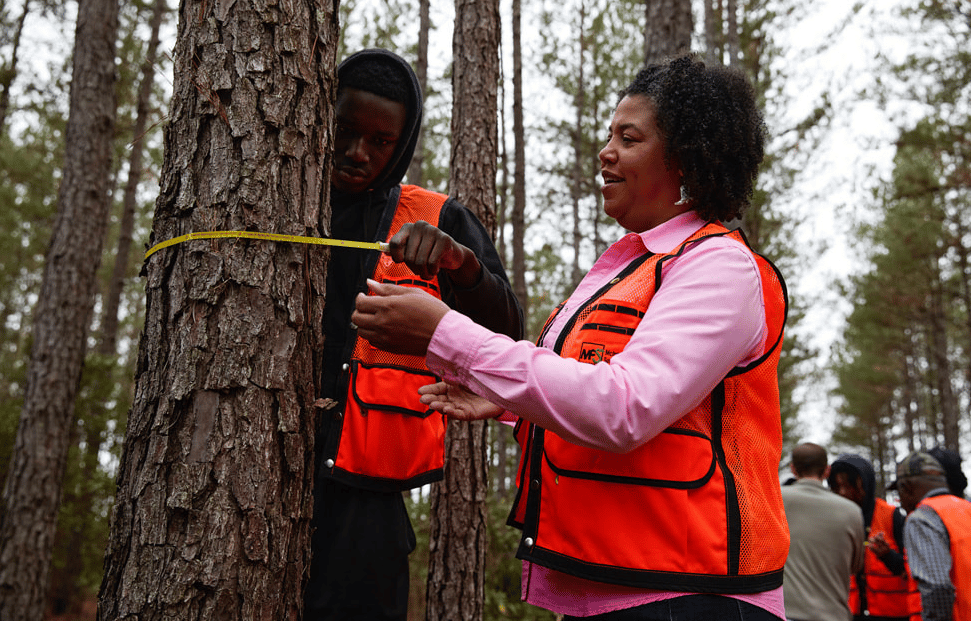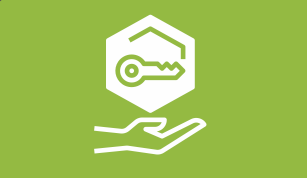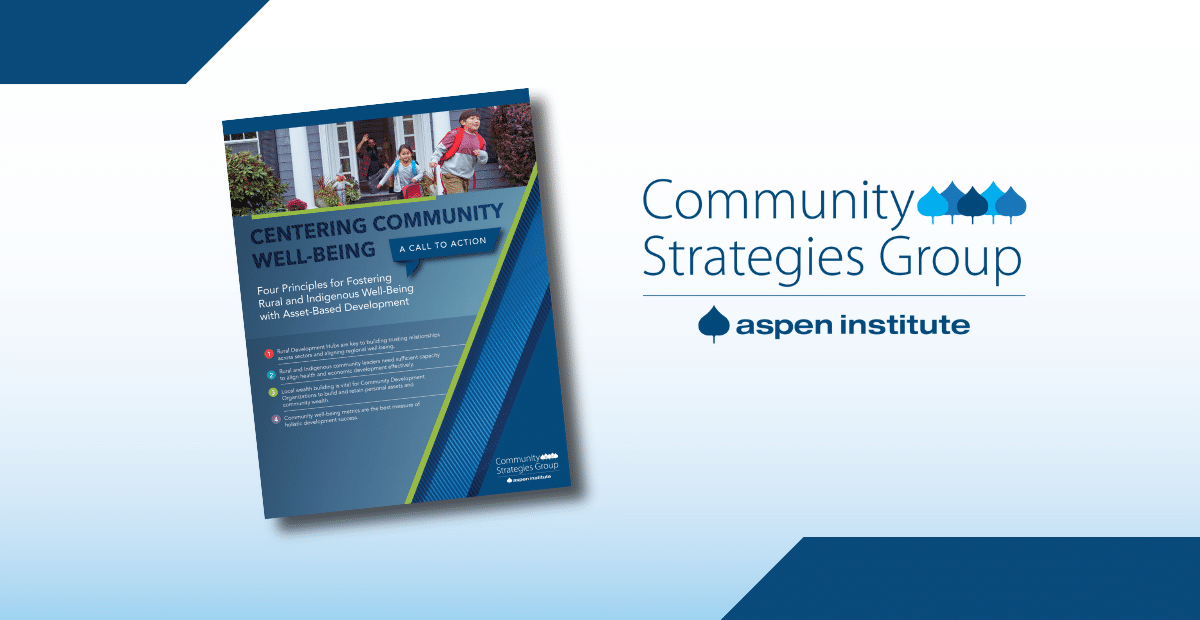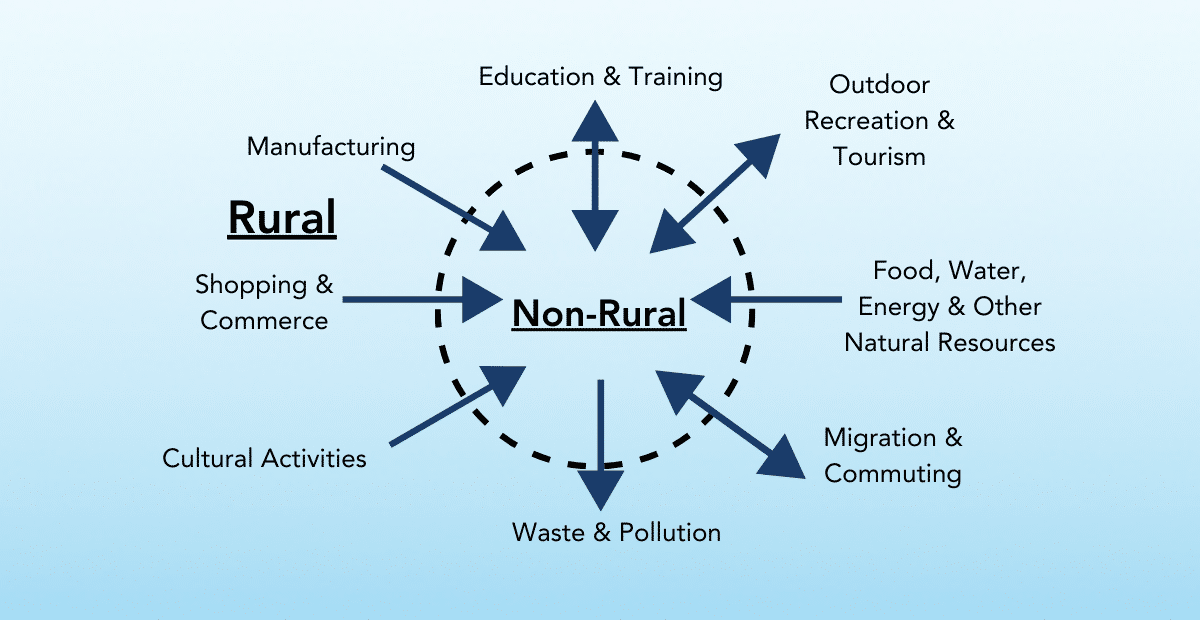View this Publication
For the third case study in our What’s Working in Rural series, we examine how communities that have been historically and systematically excluded can develop authentic and effective leadership that builds power to challenge the status quo.
Our case study is on the Sustainable Forestry and African-American Land Retention Network (SFLR), a Black-led organization founded in 2012 to keep Black-owned forests forested and within the family.
SFLR is a network of eight anchor organizations deeply grounded in rural Black communities across the South, from Virginia to Texas. These organizations use sustainable forestry as a way for landowners to maintain their deep ties to the land while promoting wealth creation and land retention.
SFLR offers the following tips to other organizations seeking to leading through relationship:
- Hire community-grounded staff from a variety of backgrounds.
- Be reliable in building and maintaining trusting relationships.
- Know that it takes commitment.
- Developing the leadership necessary to build power takes time.
Download the case study for more details on this practice.
Related Resources
Aspen CSG’s consultant Rebecca Huenink led the writing process for our What’s Working in Rural series. We are grateful for her contributions.

